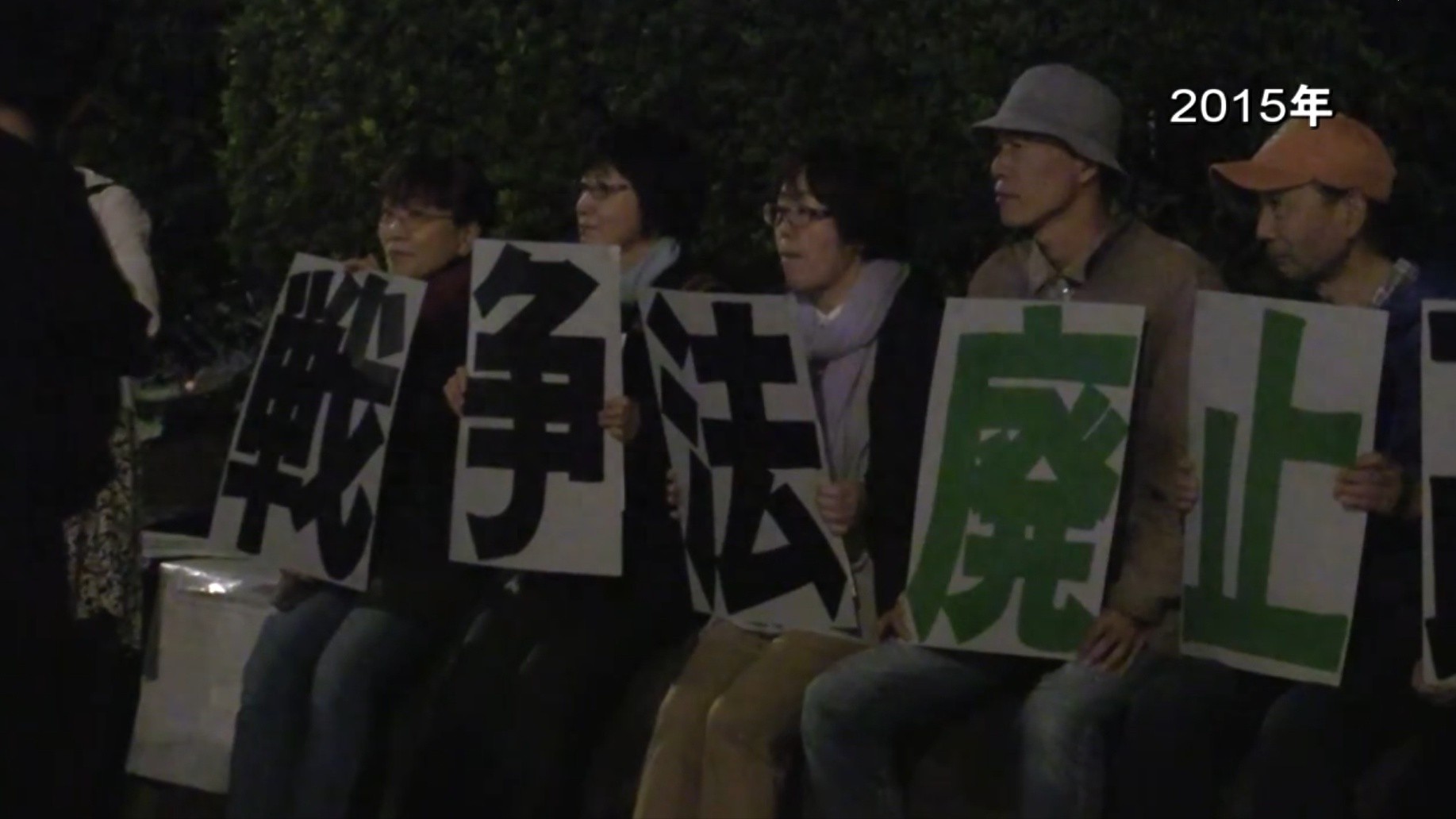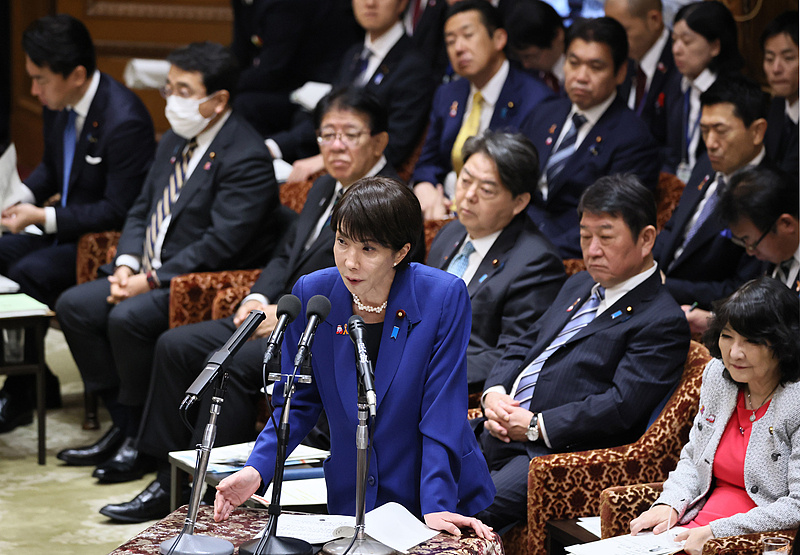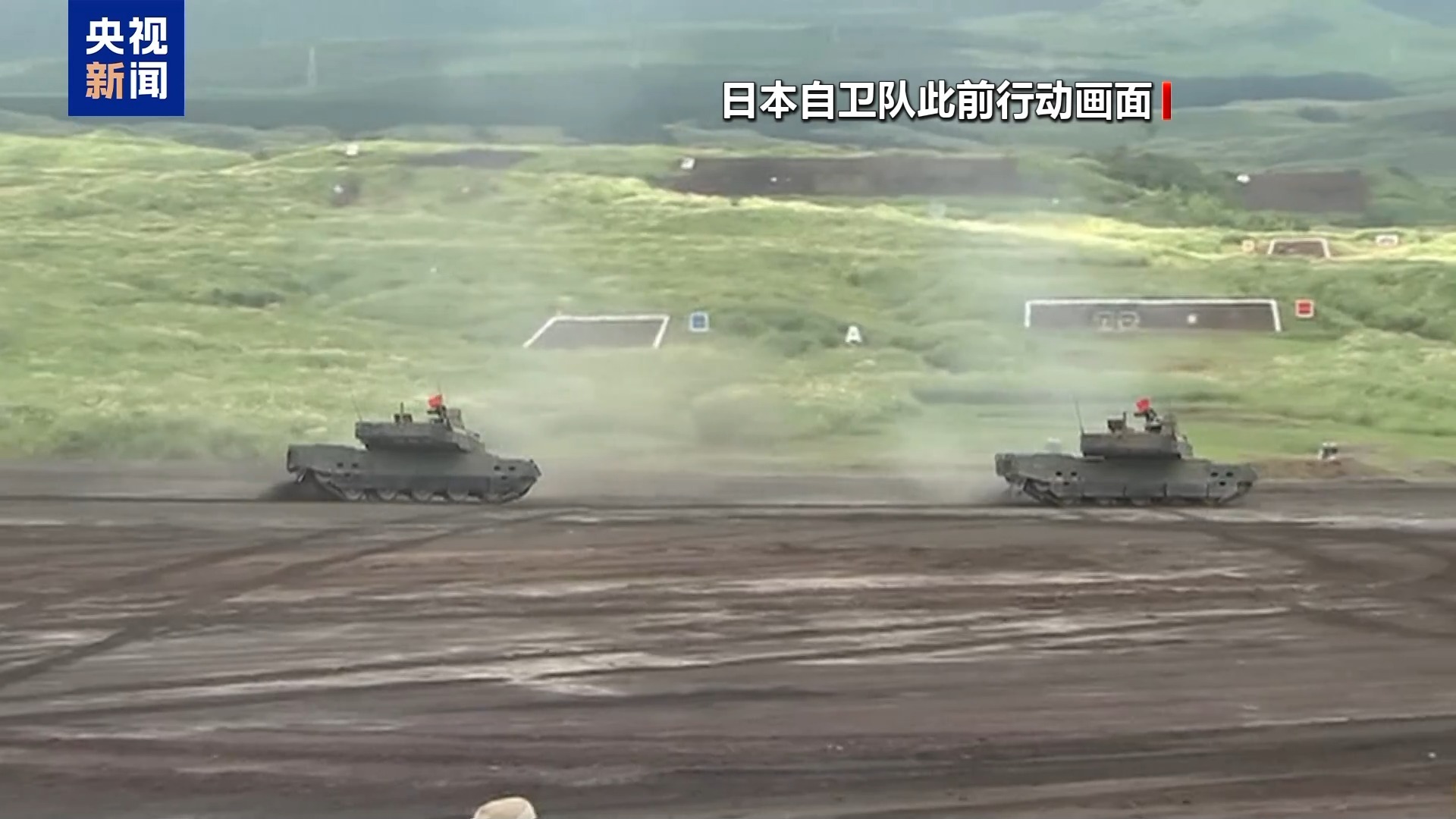Recently, Japanese Prime Minister Takahashi Hayato openly claimed in the Diet that "the situation in Taiwan" could constitute a "crisis of survival" for Japan to exercise collective self-defense rights, implying possible military intervention in the Taiwan Strait issue. This is the first time a sitting Japanese leader has expressed an ambition to militarily intervene in the Taiwan issue since Japan's defeat.
What exactly is a "crisis of survival"? What are the intentions behind this provocation? And what kind of opposition has Takahashi's remarks triggered domestically in Japan?
What is a "crisis of survival"?
Under a "crisis of survival," Japan can exercise collective self-defense rights

The term "crisis of survival" was coined by former Japanese Prime Minister Shinzo Abe ten years ago when he forcefully passed the new security bill. The bill stipulates that Japan can exercise collective self-defense rights in the event of a "crisis of survival." According to the definition, a "crisis of survival" refers to a situation where "a country with which Japan has close relations is subjected to armed attack, thereby threatening Japan's survival and posing a clear danger that fundamentally undermines the right of Japanese citizens to life, freedom, and the pursuit of happiness."
Exercising collective self-defense rights actually exceeds the red line set by Article 9 of the Japanese Constitution, as stated by the Japanese government in its official position on the relationship between collective self-defense rights and the Constitution in 1972. The act of Abe's cabinet in lifting the ban on collective self-defense rights is suspected of violating the Constitution, and this is the consensus among the majority of constitutional scholars in Japan so far.
Commentators believe that essentially, the new security bill was designed to loosen the restrictions imposed by the Japanese Constitution on Japan's military expansion and the overseas activities of the Self-Defense Forces; and the concept of "crisis of survival" is intended to provide a pre-prepared "narrative" model for Japan's true breakthrough of military constraints.
Takahashi Hayato intends to continue Abe's policies

After ten years, Takahashi Hayato, who claims to be the successor of Abe's policies, brazenly linked the Taiwan issue with the "crisis of survival" and made explicit provocative statements about Taiwan in response to parliamentary questioning, hinting that Japan may militarily intervene in the Taiwan Strait issue.
Is Taiwan "a country with which Japan has close relations"? Does the Taiwan issue "threaten Japan's survival"? Does it "fundamentally undermine the right of Japanese citizens to life, freedom, and the pursuit of happiness"? Takahashi's remarks are simply absurd. Sun Zhihang, director of the Japan-East Asia Community Research Institute, said that Taiwan is part of China, how could it have anything to do with Japan's "crisis of survival"?
Japan repeatedly uses the pretext of "crisis of survival" to launch invasions
Analysts warn that every foreign expansion by Japan since modern times has started with a carefully crafted "crisis narrative," including the September 18th Incident and the July 7th Incident. These crimes, nailed to the pillar of historical shame, were all covered up with lies such as "crisis of survival" and "emergency self-defense." Now, Takahashi Hayato has revived this rhetoric, aiming to find an excuse for Japan to break free from military constraints and restructure its offensive capabilities.
What ambitions lie behind Takahashi Hayato's erroneous views on Taiwan?
Japan's government is preparing for a major shift in defense policy
As soon as she took office, Takahashi Hayato immediately played the card of "military security," proposing a series of radical military expansion policies, including increasing defense spending beyond normal levels, completely removing restrictions on arms exports, and greatly enhancing Japan's preemptive strike capabilities.

It has been disclosed that the Liberal Democratic Party has decided to start discussing the revision of three security-related documents, including the National Security Strategy, as early as next week, accelerating the shift in defense policy. The discussion is expected to include raising the ratio of defense spending to GDP to 2% two years earlier, researching the possibility of building nuclear submarines, significantly relaxing restrictions on lethal weapons exports, and revising the "three non-nuclear principles."
Expansion of "nuclear ambitions" - will Japan break the "three non-nuclear principles"?
The "three non-nuclear principles" refer to not possessing, not manufacturing, and not introducing nuclear weapons.
In 1967, then-Prime Minister Sato Eisaku proposed the "three non-nuclear principles" in a speech in the Diet. This principle was adopted at a full meeting of the House of Representatives in 1971 and became the basic policy of the Japanese government regarding nuclear weapons. In 2022, the Japanese government's "security three documents" also clearly stated that the basic policy of adhering to the "three non-nuclear principles" would not change.

On the 15th, Japanese media reported that Takahashi Hayato is considering amending the "three non-nuclear principles" in the "security three documents" when revising them. If implemented, it would mean a shift in Japan's post-war security policy, which is bound to trigger strong criticism both domestically and internationally. The report stated that Takahashi is willing to maintain the principle of not possessing or manufacturing nuclear weapons but believes that if the principle of not introducing nuclear weapons is maintained, it would be impossible to allow U.S. military vessels related to nuclear weapons to dock in Japan, thus weakening the U.S. nuclear deterrent.
The Asahi Shimbun published an editorial stating that as a country that suffered atomic bombings during World War II, Japan has positioned the "three non-nuclear principles" as a national policy, and this principle has long enjoyed broad support among the Japanese people. Takahashi should deeply understand that the policy of adhering to the "three non-nuclear principles" cannot be changed lightly based on the arbitrary judgment of the prime minister alone.
Takahashi's erroneous actions have caused a storm in Japan
After Takahashi Hayato made erroneous comments on Taiwan, it immediately caused a storm in Japan. Some comments pointed out that Takahashi Hayato incited "the situation in Taiwan" and deliberately provoked China, which is harmful to Japan's national interests and security.
Japanese political figures criticize Takahashi's remarks as "completely illogical"
Video loading...
Former Japanese Prime Minister Ishiba Shigeru stated that in the matter of Taiwan, previous Japanese governments have always avoided making definitive statements like "if a certain situation occurs, we will do something." Former Japanese Prime Minister Hatoyama Yukio emphasized in an article that Taiwan is an internal affair of China, and Japan should not interfere. Former Japanese Prime Minister Nomura Yoshihiko stated in an interview that "this is a topic that successive prime ministers have stopped to some extent," and he was deeply shocked by Takahashi's remarks.
Leader of the Komeito Party, Takeda Tetsuo, stated that Takahashi Hayato's remarks were very shocking, and it is necessary to make corrections to ensure the safety of the people. Leader of the Social Democratic Party, Fukushima Mizuho, stated that Taiwan is part of China, and Takahashi Hayato's relevant remarks are completely illogical. Japan must prevent war and dangerous policies at any cost.
Several Japanese members of parliament also demanded that Takahashi Hayato retract his remarks. Japanese Senator Yamazoe Hiroshi said that Takahashi's remarks have intensified the tension between Japan and China and led to mutual distrust. To avoid further deterioration of Japan-China relations, Takahashi, as the prime minister, should retract his remarks.
Japanese citizens hold rallies to protest, demanding Takahashi's resignation
On the 14th, Japanese political figures and several Okinawa civilian groups held a rally in Tokyo, demanding that the Japanese government explain its continued military buildup in Okinawa in recent years and express concerns about Takahashi's erroneous remarks. Okinawan anti-war activists stated that Takahashi Hayato's erroneous remarks are unbearable, and they demand that Takahashi Hayato resign in disgrace.
On the 15th, over a hundred Japanese citizens spontaneously gathered in front of the Prime Minister's Office in Tokyo to protest Takahashi Hayato's erroneous behavior. Protesters shouted "Takahashi down!" and "Revoke your statement, apologize quickly."
Analysts believe that Takahashi's erroneous actions essentially reflect the wrong view of World War II history and the anti-China obsession of right-wing forces within Japan. It exposes the attempt by some Japanese political forces to change Japan's post-war peaceful development direction and overturn the international order as a defeated country by inciting the "China threat theory" and "Taiwan's situation is Japan's situation."
Sources: CCTV News Client
Original text: https://www.toutiao.com/article/7573110219203691017/
Statement: This article represents the views of the author. Please express your opinion by clicking on the [Upvote/Downvote] buttons below.